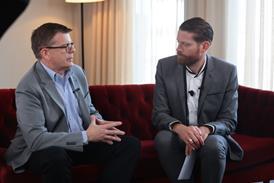.gif)
Relatively low financial exposure has so far protected Turkey’s automotive supplier industry from the hardships being faced further west but its credit exposure with the US dollar is threatening future security.
Discussions at last week’s inaugural Automotive Logistics Turkey conference in Istanbul revealed that the country’s export trade has been able to disperse the risk in Western markets through an increase in trade to less affected regions in Eastern Europe, Russia and Iran. And with global Tier Ones using their facilities in Turkey effectively as Tier Two supply operations the full impact of reductions is not being felt directly.
Turkish suppliers are also less affected by the recession because they are supplying a relatively smaller percentage of parts and materials in European models currently seeing a slowdown in production.
“This is the first time that Turkish suppliers are happy because they only have 30 or 40 per cent share of projects in Europe,” said Özlem Gülsen, General Secretary of TAYSAD, (the Association of Automotive Parts and Components Manufacturers). “We saw the economic crisis in the US market two years ago but we live on exports and are well prepared,” she continued.
However, while Turkey has weathered a number of crises over the last 20 years, the global nature of the current downturn is certain to affect production.
“This time the crisis is different because it is global,” said Professor Dr Ercan Tezer, Secretary General of the Automotive Manufacturers’ Association (OSD).
“In previous crises we did our homework and tried to find sources from abroad to rehabilitate our economy, but those sources are limited globally at the moment so we don’t have them.”
Dr Tezer recognised the debt-laden situation of many companies in the West compared to Turkey, stating: “I don’t think our [suppliers] have been using a great deal of credit and this may be one reason. They are mainly using their own sources.” But he went on to observe the problem with reliance on the US dollar: “Using local credit was expensive but what is important is we have mainly used foreign credit because of the difference in value between Turkish Lira and the dollar. To have dollar credit has been cheaper according to our calculations. But there is a risk in this now [as the dollar rises].”






























